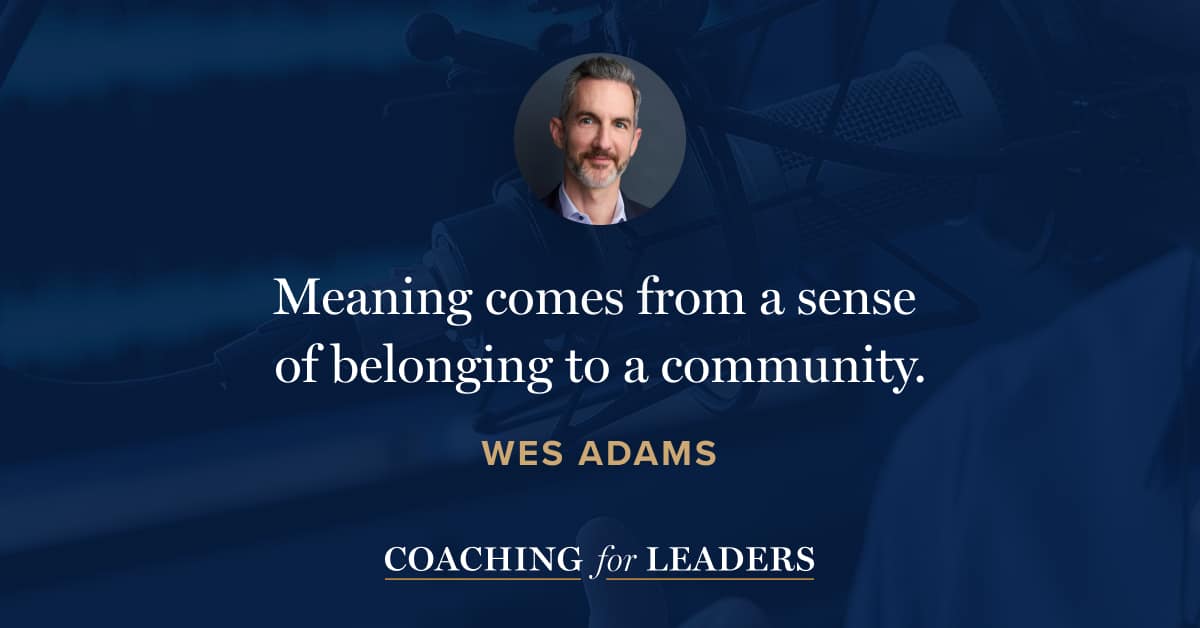Wes Adams: Meaningful Work
Wes Adams is the CEO of SV Consulting Group, a firm partnering with Fortune 500s and scaling companies to develop high-impact leaders and support high-performing teams. He is also a positive psychology researcher at the University of Pennsylvania, where he studies the leadership practices and organizational structures that help employees thrive. He’s the author, along with Tamara Myles, of Meaningful Work: How to Ignite Passion and Performance in Every Employee*.
A generation ago, work was just work for a lot of folks. Today, we expect more out of our careers than past generations ever did. That means leaders need to be better at helping people find meaning at work. In this conversation, Wes and I discuss how leaders can do better at being catalysts for connection.
Key Points
- We expect so much more from work than we did a generation ago. Work is increasingly a place where people seek belonging, purpose, and meaning.
- Supporting community in the workplace is a combination of building trust and designing shared experiences.
- Just like a balanced investment portfolio, community is a combination of diverse avenues that build a strong foundation.
- Consider a simple structure for synchronized breaks to help people connect more intentionally during work.
- Invite team members to share a story of them at their best or reflect on a photo/story that has meaning for them at the start of team meetings.
- When responding to a joy that a colleague shares, ask a follow-up question that engages and elevates.
- Higher difficulty (yet strongly meaningful) activities include shared volunteer work and funding or support for community activities.
- By occasionally sharing personal plans, stories, reading lists, or other activities, the leader sets the tone for others feeling safe to connect in this way.
Resources Mentioned
- Meaningful Work: How to Ignite Passion and Performance in Every Employee* by Wes Adams and Tamara Myles
Interview Notes
Download my interview notes in PDF format (free membership required).
Related Episodes
- How to Create Meaningful Gatherings, with Priya Parker (episode 395)
- The Beliefs of Inspirational Leaders, with Stephen M. R. Covey (episode 707)
- The Way to Notice People Better, with Zach Mercurio (episode 733)
Expert Partner
Are you a talent development or human resources leader seeking a coach for an internal client? Coaching for Leaders has partnered with some of the top coaches in the world, including a number of past podcast guests. Help us make an introduction by visiting our Expert Partners Page and telling us what you’re seeking in a coach.
Discover More
Activate your free membership for full access to the entire library of interviews since 2011, searchable by topic. To accelerate your learning, uncover more inside Coaching for Leaders Plus.





